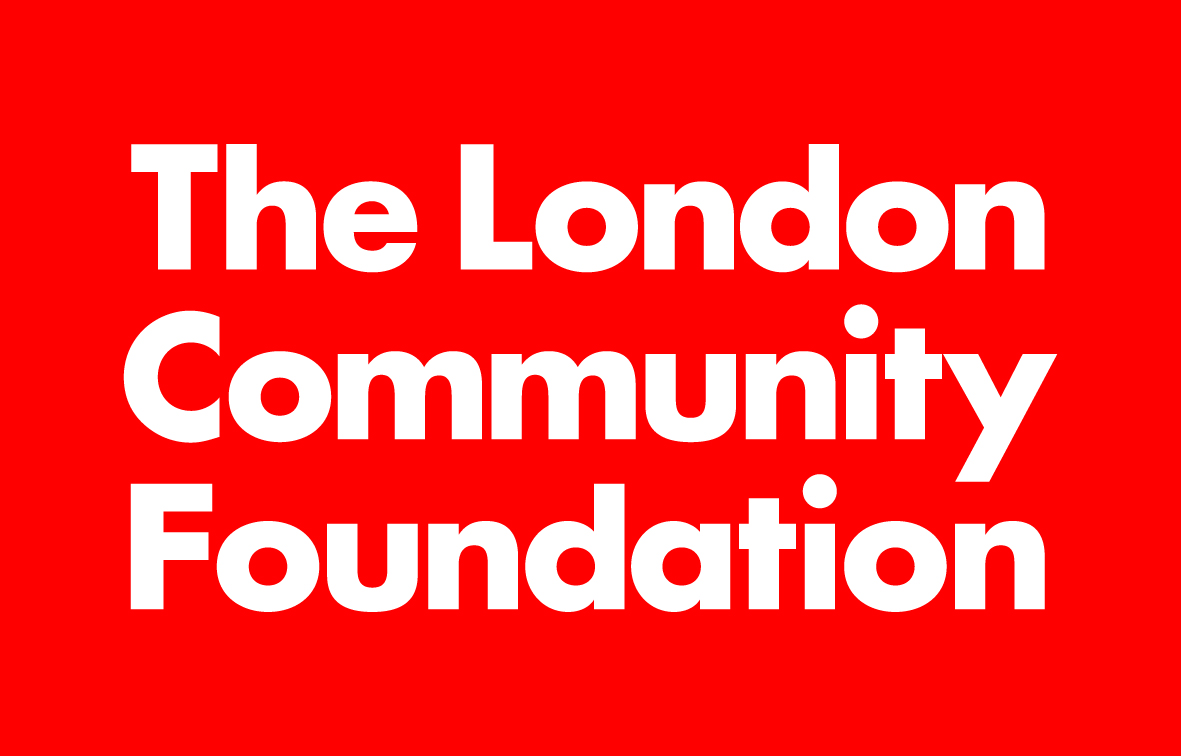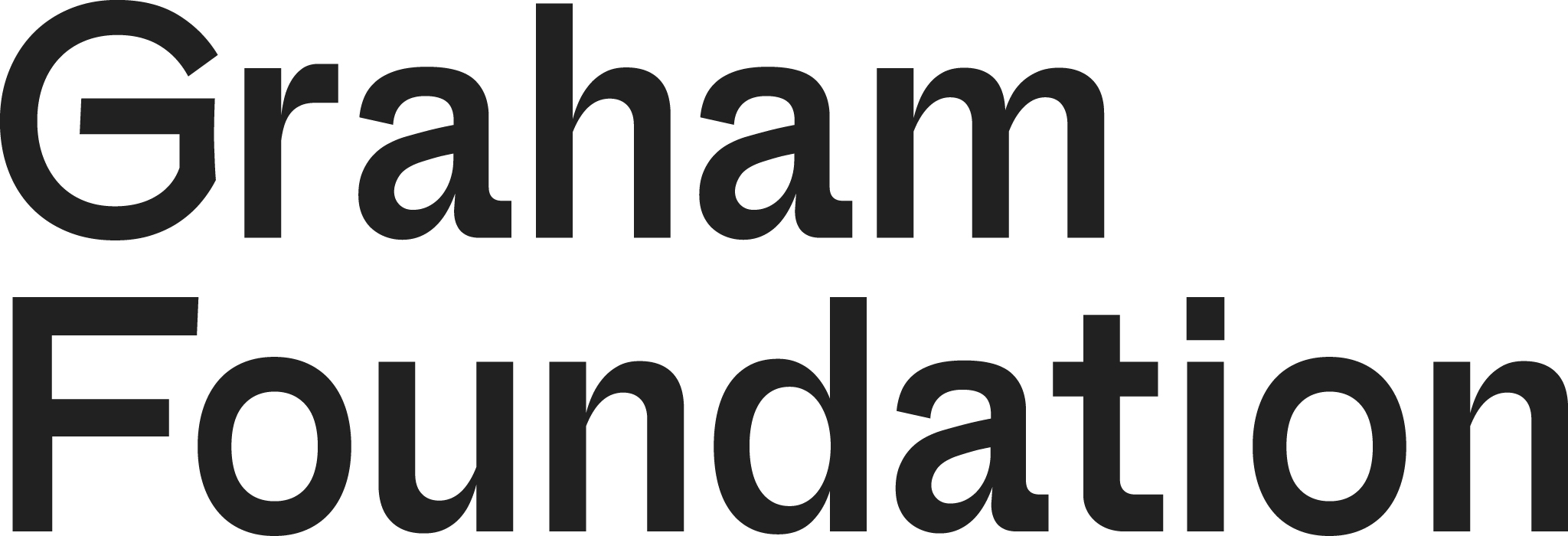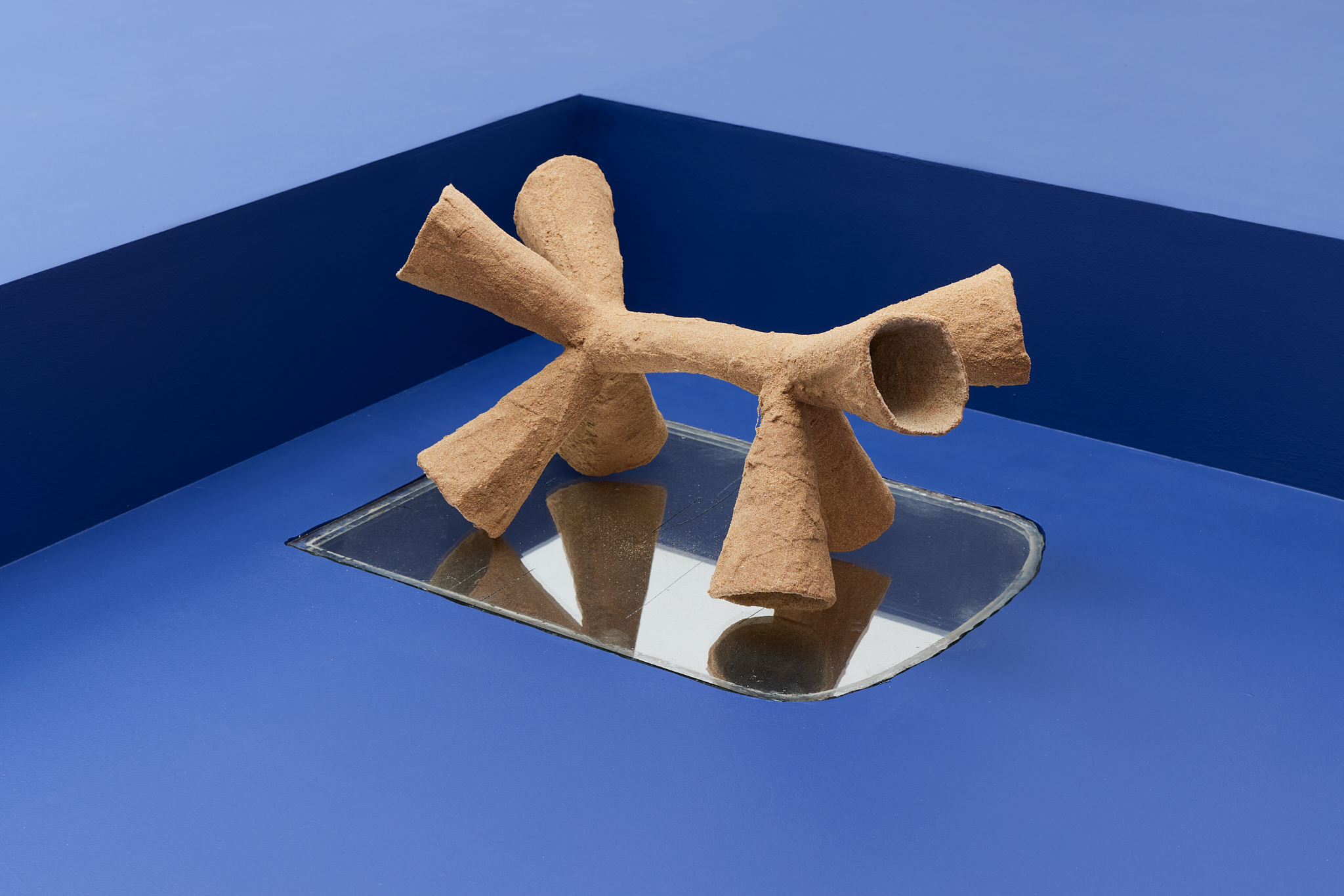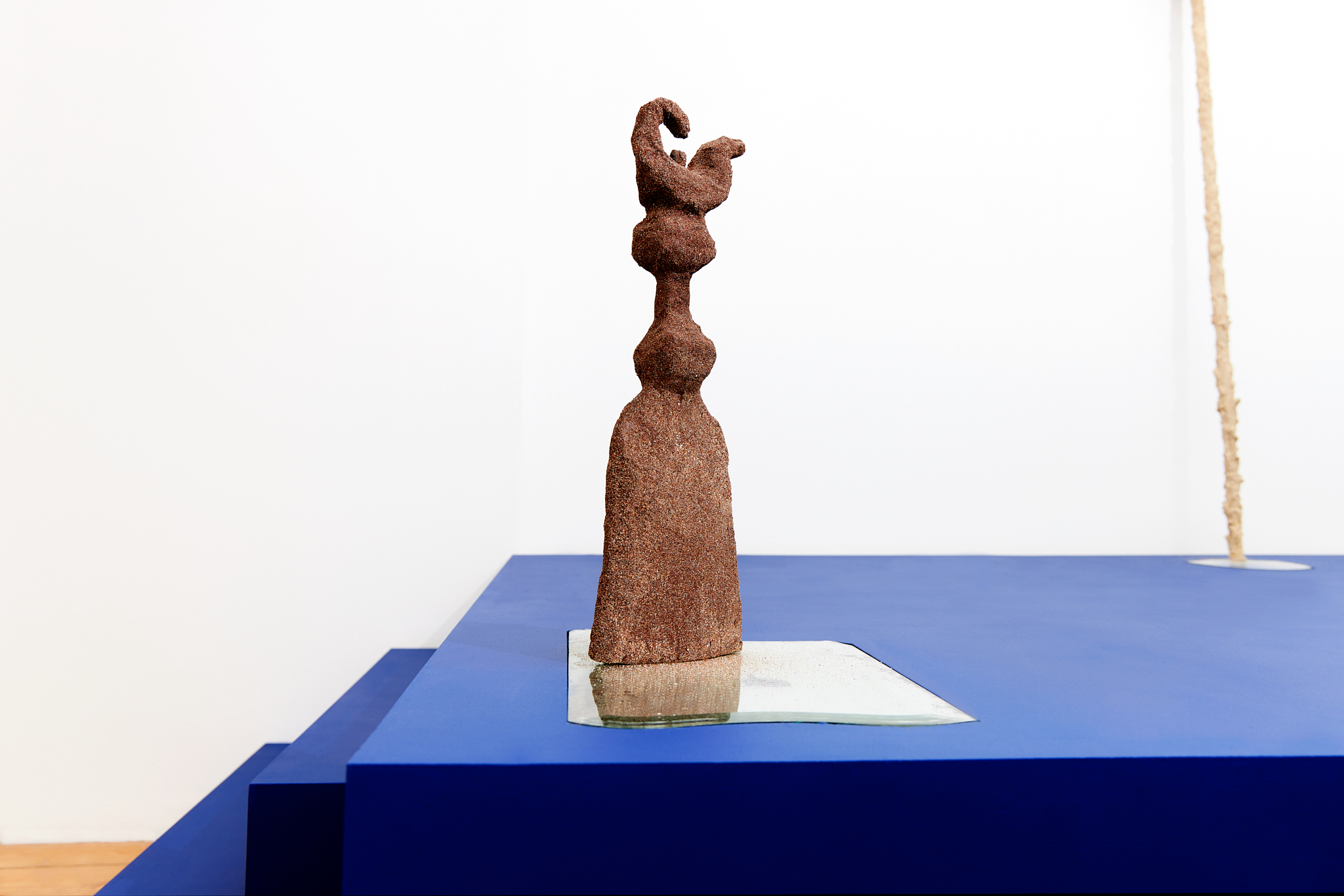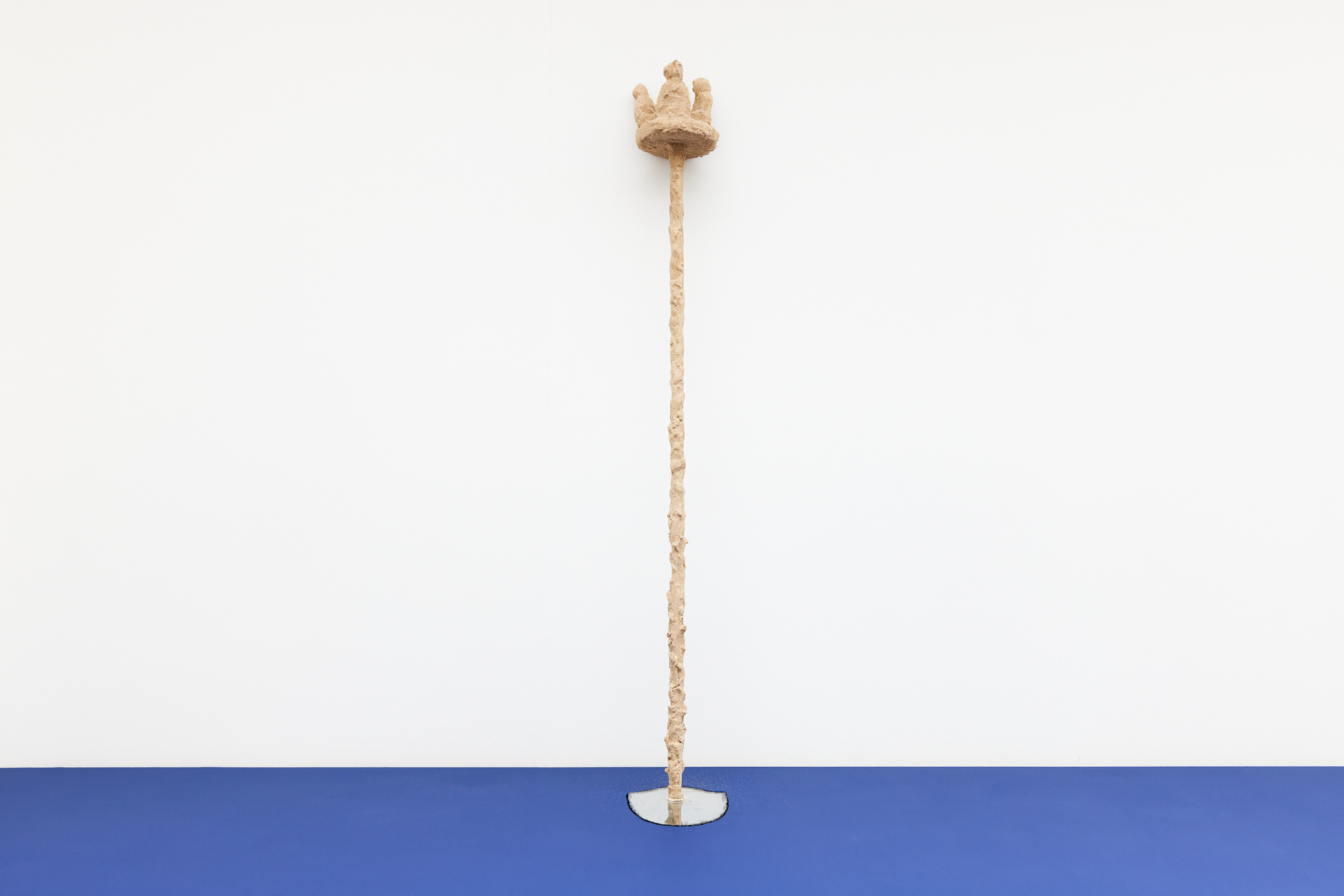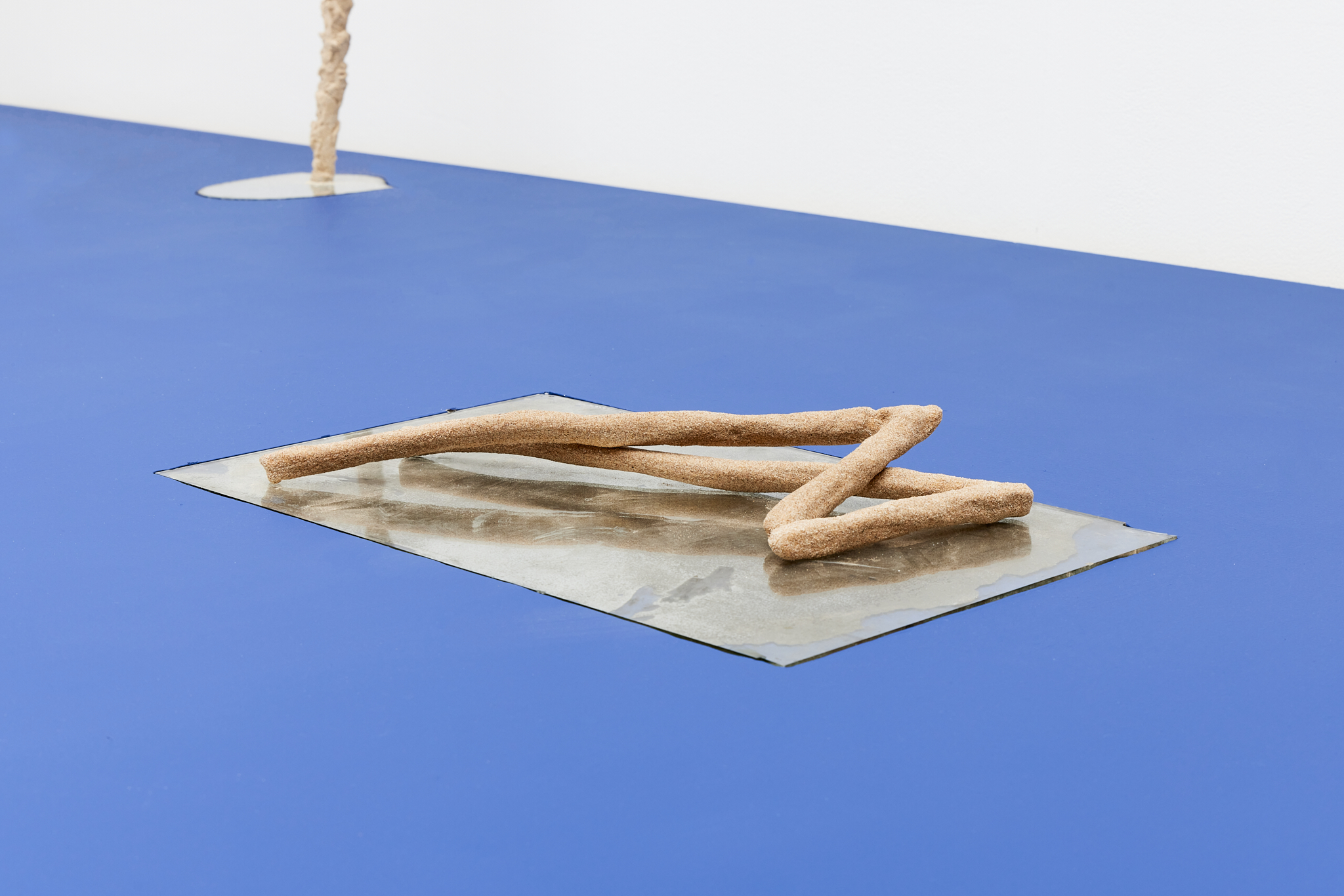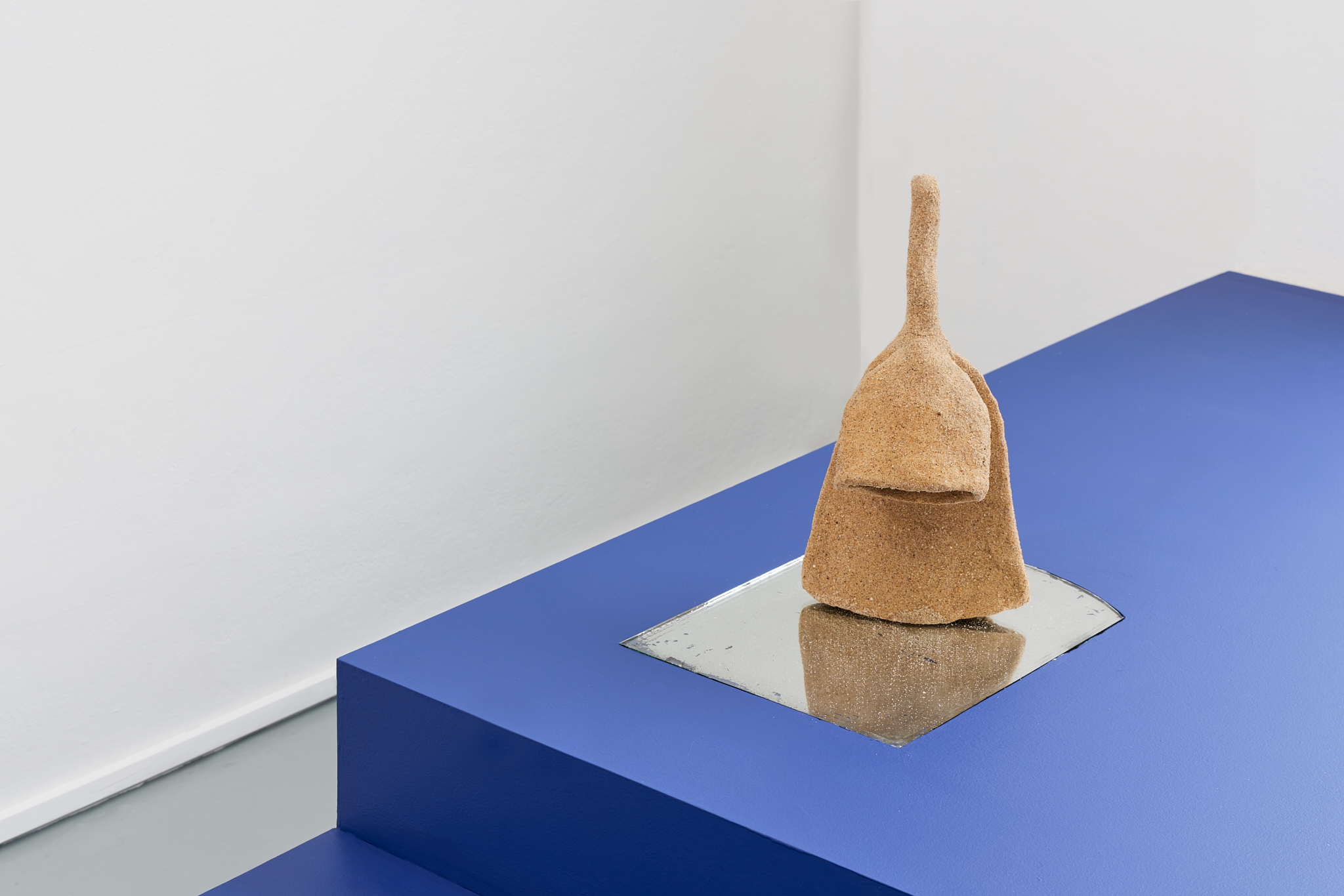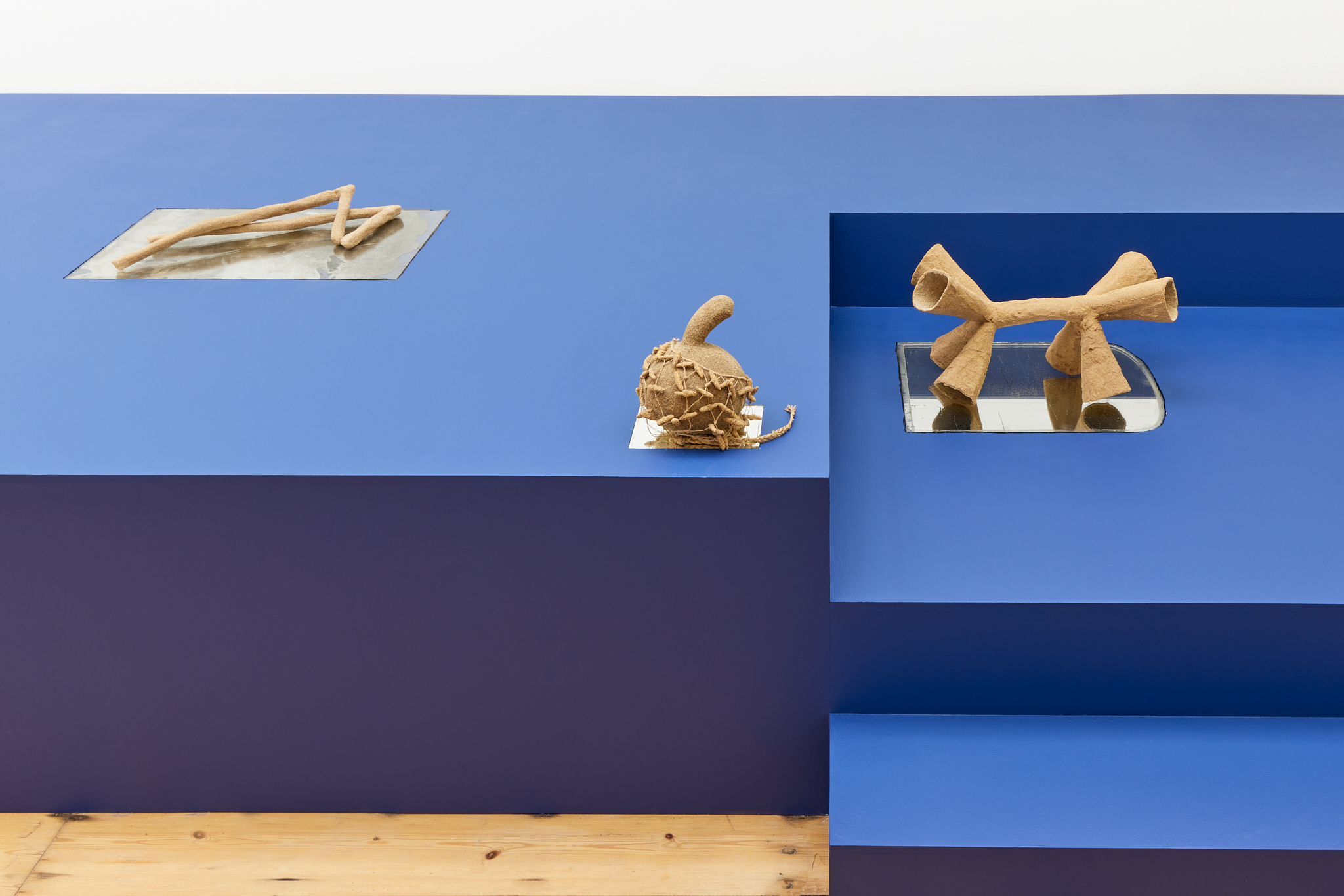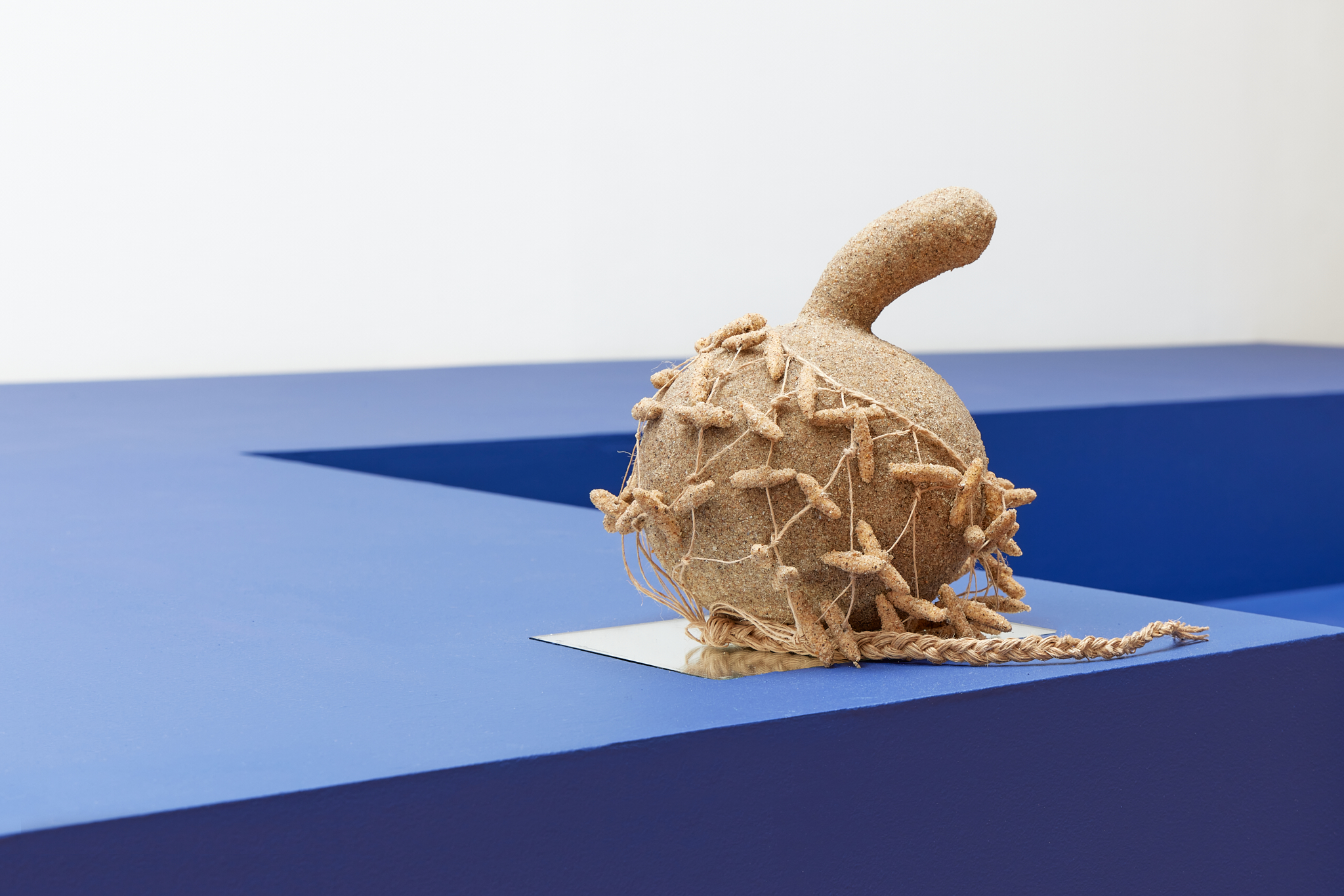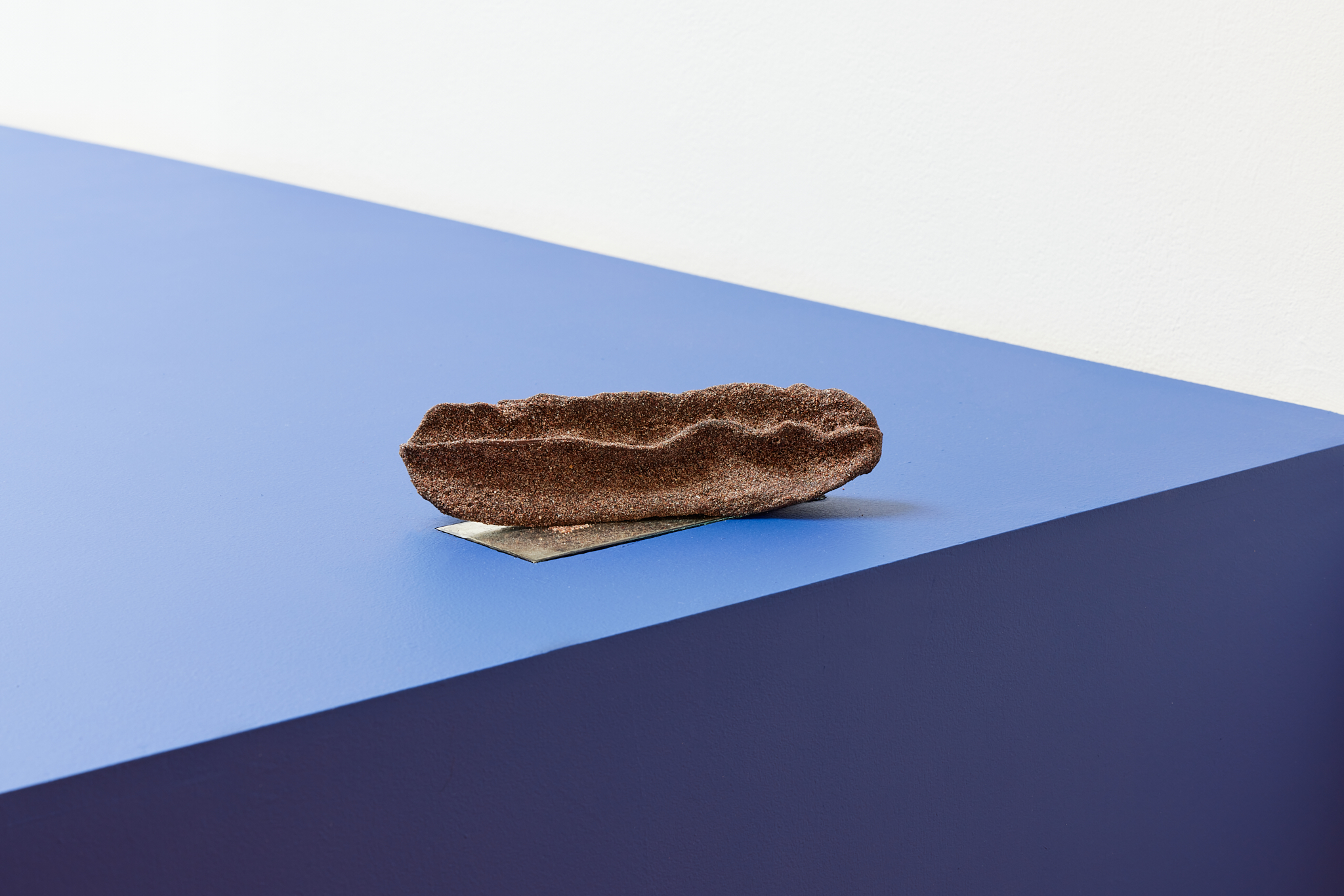Auto Italia presents The sea, it slopes like a mountain, an exhibition by Adjoa Armah. Starting with the question of what it means to treat a journey through space and time as an artistic and instructional medium, Armah sets out to translate a series of trips into the grammar of an exhibition. This presentation is the latest chapter in a series of vignettes already presented in text, performance and sound as part of the long term project In our language the word for the sea means the ‘spirit that returns.’
The work centres a 330-mile journey along the Ghanaian coast, from Beyin to Keta, a stretch of sandsoilrock with more European forts than anywhere else on the African continent. Armah invites multiple publics into the middle of things: into an as yet incomplete research process, the historical encounter, the tangle of relation and the moment of knowledge transmission. Using sand gathered from locations of personal significance, Armah produces sketches of objects selected for their function as sonic, linguistic, spiritual, historical, bodily and social technologies. These objects are reproductions of examples held in European and North American museum collections, including musical instruments and ceremonial objects. Armah presents these objects on mercury-backed mirrors, referencing the trade and economic relations at her sites of interest, the potential for material transformation and the desire for self-recognition.
These reproductions are put into correspondence with elements of the journey: field recordings of sea, birdsong, extracts of conversation and the artist’s own narration. Through sound Armah explores orality, hierarchies of knowledge, how Blackness is formulated in place, and what the material detritus of locale reveals about both its specificity and its always-present elsewheres. With her interest in the constitution of the archive, traditional West African architecture and the role of dramatisation in knowledge transmission within oral epistemologies, Armah considers the archive built along this journey as a spatial and architectural constellation, an entity defined as much by its contents as the container it is placed in.
This encounter between sound, environment and object takes place on platforms referencing a stage and the steps leading to the various areas of an Ashanti Abosomfie (shrine house), where objects related to communication, sustenance and wellbeing, individual and collective, are encountered. The symbolic decoration and red-orange colouring of the traditional Abosomfie gives way to blue. By staging objects in this way – holding on to modes of encounter and making meaning in the world beyond the comprehension of the colonial imagination – Armah creates an ambiguous historical moment and point of reflection, in which various moments, belief systems and places form a syncretic chorus.
Accompanying this commission is a comprehensive public programme in London, UK; Accra, Ghana and along the Ghanaian coast. Auto Italia and Nubuke Foundation will host a series of conversations with an international community of artists, writers, and scholars exploring issues surrounding black methodologies, placemaking, temporality, archival intimacies, spiritualism, syncretism and orality. The Ghanaian coastal programming will include broadcasting with local radio stations and an intergenerational oral histories project in collaboration with LOATAD (The Library Of Africa & The African Diaspora).
With special thanks to Oòshà (Adegoke Habeeb A), Elton Kwei Foli, James Seow, Priscilla Yeboah-Newton, Feben Vemmenby, Ebun Sodipo, Sariah Armah, Solace Armah, Kate Armah, Anthea Armah, Solace Armah, Tawfik Naas, Sepake Angiama, Enyo Amexo, Vijay Masharani, Sel Kofiga, Yaw Mankatah Asare, Henneh Kyereh Kwaku, Kobena Ampofo, Hamza Moshood, Alvaro del Fresno Mayoral, Onyeka Igwe, Samson Kambalu, Deborah Joyce Holman, Priya Jay, Uzoma Orji, Anakwa Dwamena, Christin Yu, Hannah Catherine Jones, Abe Odedina, Yvette Tetteh, Tommie Introna, Charlie Fegan, Francis Whorrall-Campbell, Rindon Johnson, Doreen Mende, Owen Green of University of Oxford, Department of Earth and many more fellow travellers unnamed.
The sea, it slopes like a mountain is commissioned by Auto Italia and co-produced with Nubuke Foundation, Accra. The exhibition has been made possible by Headline Exhibition Supporters Cockayne – Grants for the Arts and The London Community Foundation, with support from Arts Council England, British Council and Graham Foundation.
Auto Italia’s commissions are made possible by our Exhibition Circle and Member supporters.
Adjoa Armah (b. 1988, Ghana) is an artist, educator, writer and editor, currently based between London and Accra. With a background in design anthropology, her practice is concerned with the entanglement between narrative, the archive, pedagogy, Black ontology, infrapolitics, and spatial consciousness. She is the founder of Saman, an archive of over 100,000 film negatives from across Ghana. She has published works in e-flux, Frieze, A Magazine Curated by, Apartamento, Vogue and TSA Art Magazine. She is editor and research fellow at Afterall, where she is responsible for the Paul Mellon Centre-funded digital research project ‘Black Atlantic Museum’ and the ‘Afterall Art School’.


